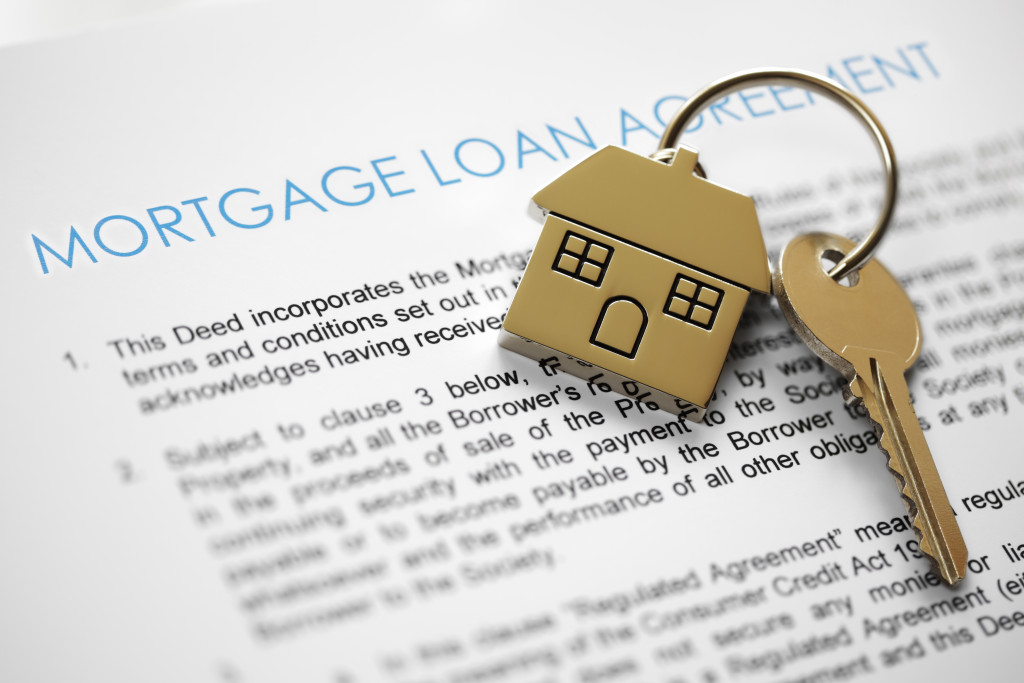The pandemic has led many homeowners financially crippled since the COVID-19 outbreak in March of last year. While some people lost their jobs, a few others closed their businesses for good. Mortgage borrowers, in particular, have found it challenging to keep up with their monthly contractual payments (MCP). As you may or may not be aware, MCP delinquencies can lead to foreclosure and escalate into bankruptcy.
It’s good that the Coronavirus Aid, Relief, and Economic Security (CARES) Act was enacted to combat the financial impact brought about by the COVID-19. In line with this act, lenders offer mortgage relief options to help borrowers. These mortgage options allow borrowers to adjust their payments, change their loan terms, and obtain financial assistance.
What mortgage relief options to take?
Let’s take a look at some mortgage relief options you can take during this pandemic. Take note of the following:
- Mortgage Refinancing: Refinancing a mortgage entails changing your loan agreements under the same or a different lender. For the most part, people consider refinancing to reduce their MCPs, lower their interest rates, extend their loan terms or switch from an adjustable-rate mortgage (ARM) to a fixed-rate mortgage. If you can no longer keep up with your monthly payments, you can resort to refinancing as your best option during the pandemic.
- Home Equity Loan: Home equity is the difference between the home value and the outstanding balance on a mortgage. If you’ve paid enough for your loan balance, this means that you have enough home equity. If you do, you have the option to get a home equity loan. If approved, you’ll get a lump sum of money you can use to pay for your bills and cover other expenses such as your MCP.
- PMI Elimination: Private Mortgage Insurance (PMI) is usually present in conventional loans as a lender’s protection. It is a part of the MCP along with the escrow account (tax and insurance). In case you default on your mortgage loan, your lender won’t be financially impacted. But if you’ve met certain criteria, you can request a PMI removal. Doing so will help reduce your monthly mortgage payments.
- Loan Modification: Loan modification is exactly what it is — changes made to a loan as agreed by the lender and the borrower. The amendment includes reducing the interest rate, extending the repayment timeframe, and changing the MCP. This mortgage relief is a viable solution if you cannot pay for your original loan every month.
- Mortgage Forbearance: Forbearance is simply the postpone of mortgage payments instead of leaving a borrower on loan default or putting the property into foreclosure. It’s good that real estate investors Freddie Mac and Fannie Mae have set guidelines for forbearance in the wake of the COVID-19 pandemic. The guidelines allow you to suspend your mortgage payment due to the global crisis. Later on, you can work with your lender to modify your loan and reduce your MCP.
- Homeowner Assistance Fund: Under the Consolidated Appropriations Act, 2021, the Homeowner Assistance Fund (HAF) seeks to help borrowers in their mortgage payments. The goal is to avoid delinquencies, defaults, and foreclosures. If you’re struggling to pay your mortgage payments during this pandemic, consider applying for HAF.
What happens next?

It’s imperative to understand the repercussions if you’re unable to pay for your mortgage. Typically, you are required to pay for your loan on the agreed due date. If you’re unable to do so, you usually have a grace period of 15 days before payment will be considered late. If you are still unable to pay, it can escalate to the following:
- Default: This happens if and when you don’t pay after 30 days. In this case, you’ll be tagged as delinquent and reported to the credit bureaus.
- Foreclosure: The foreclosure process starts when you are unable to pay after 120 days. In this case, the lender will take the property ownership from you. Your name will now be removed from the title due to non-compliance with the loan agreement.
- Bankruptcy: For the most part, you will have to file for bankruptcy if you’re going to lose your property in foreclosure. You will either file for Chapter 7 (all debts will be wiped out) or Chapter 13 bankruptcy (some balances will be paid, and the rest will be discharged). In this case, you must get a bankruptcy attorney to assist you in filing for bankruptcy.
At this point, you now know what your mortgage relief options are during the pandemic. Be sure to consider one of the recommendations above, whether refinancing, PMI removal, or forbearance. Ultimately, doing so will help you avoid getting into default, escalating into foreclosure, and worse, filing for bankruptcy.

